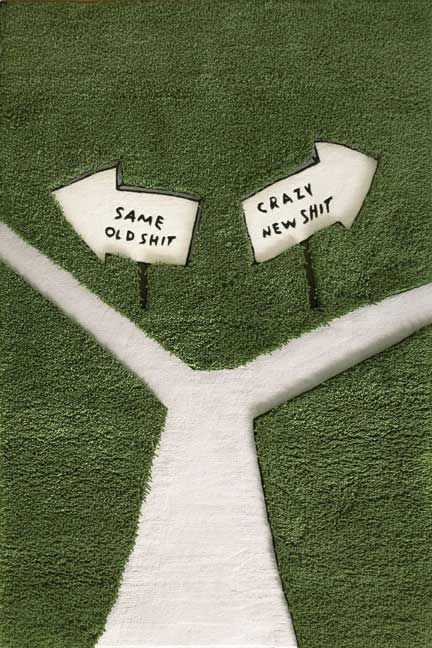As I was sitting in a year-end retreat, I started jotting down this list of things that the development aid world could use more of in 2013. I offer it as some food for thought for the year ahead.
- Aid organizations that are external-facing, employing attentiveness to “taking the pulse” of the customers and partners they serve and the world around them. No more head-down, power-through focus on “our programs”. Time to look up and outside of our own systems, requirements, and politics.
- Macro-micro linkages. After all, it’s all about the layers, joining policy—program—practice—reality.
- Expert facilitators who can translate between people speaking different languages, e.g. economists and activists, presidents and community leaders, poets and scientists, to ensure fruitful dialogue rather than diatribes.
- A renewed focus on capacity building, this time based on people’s identified needs. It’s fundamental, and hard to measure or not, it’s more important than service delivery.
- Experts in building functional and practical client/beneficiary feedback mechanisms, i.e. people who can close the loop and create the institutional incentives to ensure it continues.
- A lowered aversion to risk-taking. What have we to lose?
- Well-resourced funding mechanisms that distribute more funds, to more actors, in smaller tranches.
- People who specialize in working across disciplines and sectors, specialists in generating connections that would not typically come about.
- The courage and honesty to talk about aid’s most difficult topics – race, power and privilege.
- Behavioral psychologists who can tell us more about how perception is formed and how decision-making works by those in power. (Hint: Time to stop diagnosing the poor’s behavior and look at those whose decisions structurally enable poverty to persist.)
- Storytellers that can convey complexity.
- An ability and willingness to keep watch for often unpredictable dimensions of change and progress that don’t occur in a logframe.
- Moral leadership. We need all the echoing voices we can find to bring Freire’s and Biko’s and Ghandi’s (and, and, and…) ideas into aid’s day-to-day reality.
What would you include in your list for development aid in 2013?
“Everything has been thought of before, but the difficulty is to think of it again.” ~Johann Wolfgang von Goethe
***
Related Posts
How to Work in Someone Else’s Country (A Book Review)
A new kind of aid donor: Four things they do differently
What’s needed to put local champions at the forefront?



Thank you for this good summarizing thoughts. I will add
-bottom up approach in aid delivery (addressing mainly Europe) and bigger trust in grass root level organization.
-De monopolization in NGO. We, people on the ”ground” (supported and supporters) do not need corporations in CSO or NGO.
Sincerely
Suzana Kaplanovic
Serbia
And can I add one thought? How about more self-reflection about the root causes of the problems that “aid” is trying to solve and aid actors’ own contributions to those dynamics (for example, as beneficiaries of inequality)–intentional or unintentional.
Thought-provoking list that! Good to see so much that challenges status quo process.
In 3: if one can find facilitators that are as comfortable across cultures as well as across languages, that would be ideal.
Good contributions. In addition, we need to properly identify what the people need( not in terms of symptoms) and then address those issues from an economic point of view.
Pingback: Fundraisingwoche vom 07.01.-13.01.2013 | sozialmarketing.de - wir lieben Fundraising
Unpacking what we have to offer in such a manner that it becomes easy for the recipients to receive it.
A list of fundamental principals can be select amongst these. They are aspects that every one with good experience at the grass root would look forward to. Monopoly has for long over shadowed some sections like 7 and 3 in this list,experts who would translate between people are very under resourced. They are always looking at influential like you Jennifer to change the game.
A thorough list! However, I need to further qualify item 7 – well-resourced funding mechanism. It is equally important to ensure that funds are put into proper use! Otherwise, it is inevitable that funds provided to are wasted! I came across recently an aid agency has supported an NGO to work in rural development including livelihoods enhancement of the recipient end. The agency injected resources and set up mechanisms, etc. but never ventured into see how the NGO is utilizing the fund. Points I make here are that it would have been appropriate for the agency to sit with the NGO and analyse its capacity to utilize funds productively and provide other assistance required in this chain. Ideal if a specialist is posted on short-time basis to assist the NGO. So sad to hear that the agency stopped funds and that saw the disappearance of the NGO. This NGO is perhaps the only one which implemented RD activities and so many other donors and government agencies banked on it for the delivery of its own aids/activities. Where to from here??